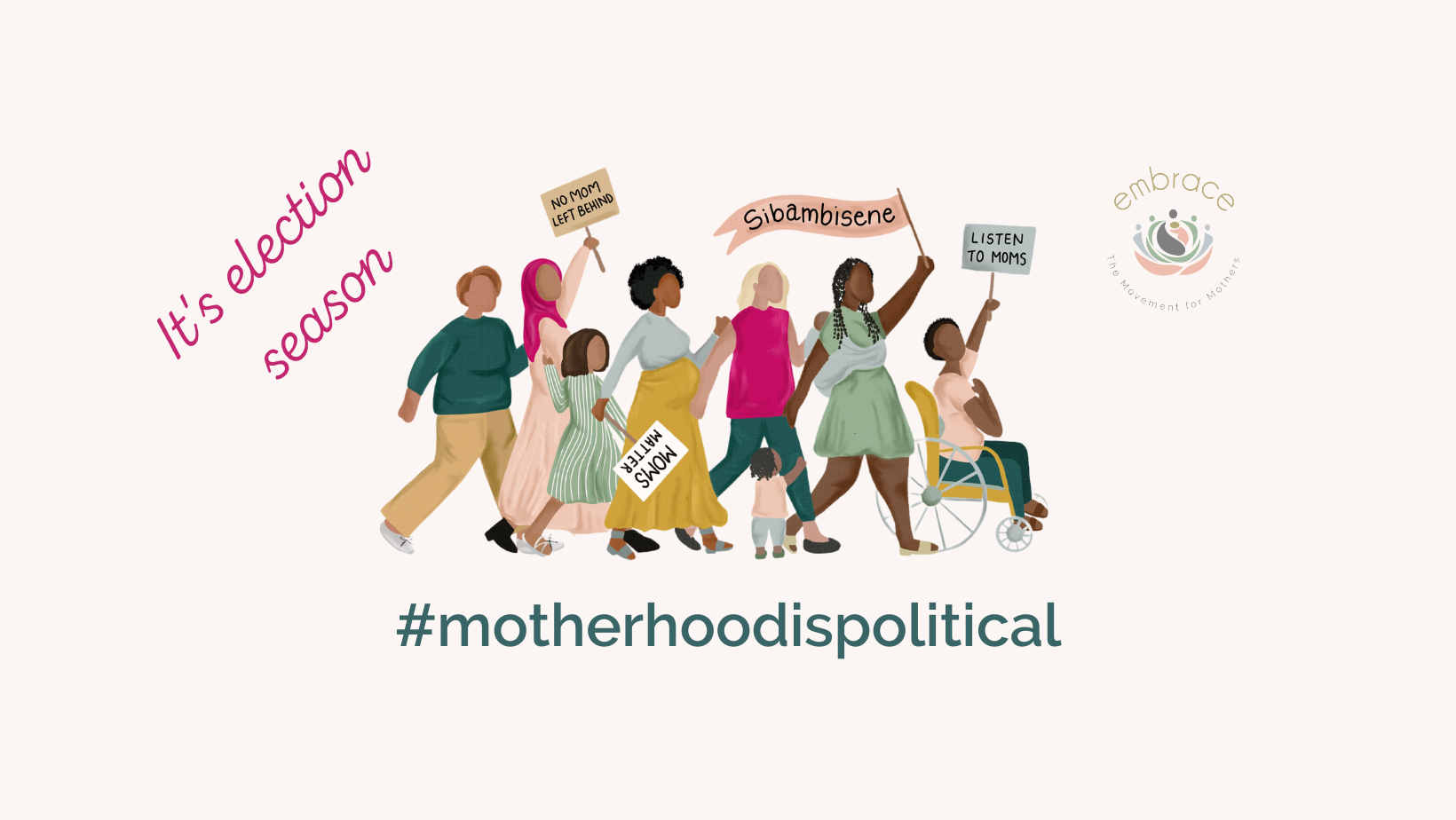With election day less than a month away, we thought we would go over a few voting fundamentals. We’ve put together a quick guide for mothers and mother-supporters on how to make a well-informed voting decision. Here a few things to remember as we get ready to cast our votes on 1 November:
Do some soul-searching
The first step to voting in your own interests is identifying and understanding your needs. Make a list of your priority issues and use your list to evaluate whether your concerns match up with the party or candidate’s stated priorities and future plans.
You might also need to acknowledge that your views and opinions on issues will change over time as you continue to evolve. What was important to you five years ago, may not be as important to you in 2021. Remember, the decisions made by your municipality have the most direct impact on you, your family and community. The candidate you choose to represent you in local government should be able to advocate for your interests and pursue bringing about the change your community needs.
Municipal councils have the power to pass local laws and regulations known as bylaws; approve budgets and development plans and projects in your area; impose rates and taxes; deliver services such as water, electricity, sanitation, refuse removal, health services, public transport and libraries; and borrow money for development projects, using the municipality’s assets as surety.
Make sure to do your research
Give yourself sufficient time to carefully consider the candidates and parties vying for your vote. By now, most political parties have launched their manifestos outlining their position in relation to issues ranging from unemployment to crime, education, health, environment sustainability and social services. They’ve made many lofty promises about how they plan to improve voters’ lives. Political parties have put their manifestos on their official websites, making them easy to download and read in your own time. You can find video clips of speeches by party leaders at their parties’ manifesto launches on YouTube. When reading through their manifestos or watching videos, pay attention to the following: Are their plans clear and specific? Are they realistic? Will their proposed programmes make a real impact in your municipality and address your primary concerns?
To select candidates that align with your views, you need to have spent some learning about candidates and their views. Many candidates have a social media presence, on Twitter, Facebook and Instagram. Spend some time going through their social media accounts and see if they’ve posted comments about current issues relevant to their campaigns. Do you want clarity on their stance on a particular issue before you decide who to vote for? Send them a tweet or direct message them, tag them on posts you would like them to respond to. They’re more likely to be responsive and willing to engage voters now during election season.
In the case of a candidate running for re-election, critically evaluate their track record of delivery. How have they served your community over the past five years? Do they listen to the community’s grievances? Do they make themselves available to engage residents? Are communities consulted on important issues and are participation processes actually accessible? Have they been transparent and accountable? Have they freely shared important information with residents, in a timely manner? Do they regularly report back to you on the performance of the municipality?
Lastly, make sure you consider what experiences or expertise are needed for the position, whether councilor or mayor, and if they have what it takes to deliver?
Show up and be counted
To check your voter registration status, SMS your ID number to 32810. SMS your ID number to 32245 to check who your ward councillor is. If you have applied for the special vote, SMS your ID number to 32711 to check the status of your application. It costs R1.00 per SMS. On election day, go to the voting station at which you’re registered. Don’t forget your ID or valid temporary identity certificate. For more information, visit www.elections.org.za . Our votes determine who has the mandate to be our representative in local government. Make your vote count.
Make it a tradition
Research shows that lifelong voting habits are formed in childhood and adolescence. These habits have an impact on voter behaviour, and therefore, election results. Consequently, it’s important to make voting a part of your children’s early memories. Have age-appropriate conversations with your children about what elections are and how voting works. 1 November has been declared a public holiday. If possible, take the children out for ice-cream or do a fun activity after voting. Talk to older children about why it’s important to vote and how to make an informed voting decision. This is one of the ways we can make sure we raise a generation of active citizens.
We would like to know what you think. What’s on your mind as we head into elections?



